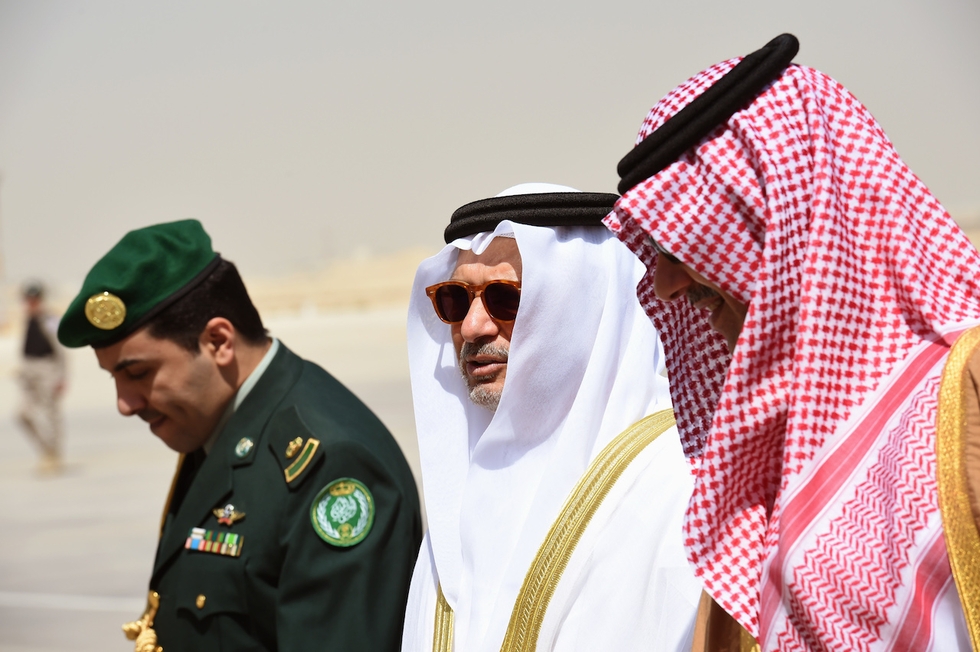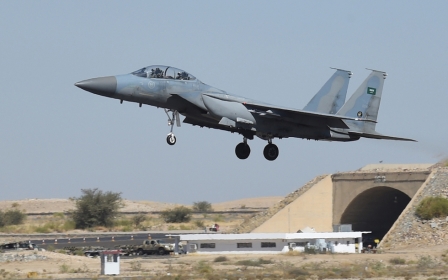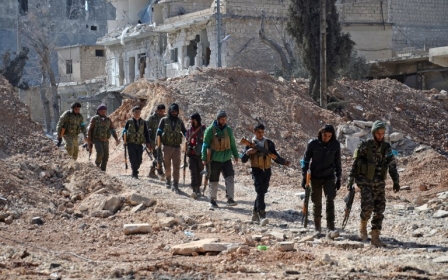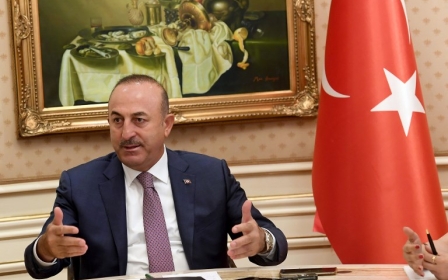UAE calls for Western monitoring of any deal to end Qatar rift

The United Arab Emirates has warned that a Western monitoring mechanism would be needed to make Qatar abide by any agreement formed to resolve the diplomatic crisis between the country and its neighbours.
The UAE foreign minister, Anwar Gargash, said that his country and its allies did not trust Qatar to change its behaviour and end support for groups like the Muslim Brotherhood.
"This is about behavioural change," Gargash said, speaking in London.
"If we get clear strategic signals that Qatar is going to change and it will stop funding violent Islamist militants, that is the basis for a discussion, but we would need a monitoring system."
"We do not trust them. There is zero trust, but we need a monitoring system and we need our western friends to play a role in this."
Gargash's comments came during a visit to the UK intended to help shore up support for the Gulf Cooperation Council blockade of Qatar.
Four Arab states - Saudi Arabia, the UAE, Bahrain and Egypt - severed diplomatic relations with Qatar on 5 June, accusing it of supporting Islamist militants and Iran, charges that Doha has rejected.
On Friday, Saudi Arabia's foreign minister said the four Arab states were drawing up a list of "grievances" and would present them soon, warning that Qatar could not fund extremism and remain on good terms with neighbouring states.
The minister, Adel al-Jubeir, told journalists in London that Qatar should respond to demands to halt its support for "extremism and terrorism" which, he said, were being made by the whole world and not just Gulf states.
The political crisis in the Gulf prompted US Secretary of State Rex Tillerson to announce on Friday that he was canceling his planned trip next week to attend an Organization of American States meeting in Mexico to instead remain in Washington to work on reducing diplomatic strains.
Tillerson "will continue his efforts to de-escalate tensions in the Middle East region through in-person meetings and phone conversations with Gulf and regional leaders," the US State Department said in a statement. It also said US Deputy Secretary of State John Sullivan would attend the OAS meeting.
Jubeir said the list being compiled by the four Arab countries were not "demands" but "a list of grievances that need to be addressed and that the Qataris need to fix".
"We are working on those with our Bahraini, Emirati and Egyptian partners in order to compile this list and present it to the Qataris, and I think it will be done fairly soon."
Calling Doha an "ally" in the six-country GCC, Jubeir said there was no intention of harming the Qatari people.
"Enough is enough, and our Qatari brothers cannot continue to fund extremism and terrorise and incite and use hostile media and interfere with the affairs of other countries and still remain in good standing," he said, adding that he expected a positive response that would move the region to a "better place".
Jubeir did not detail what demands could be made.
His comments echoed those of the UAE's ambassador to the United States, who said on Tuesday the list would broadly address three areas of support for terrorism, meddling in the internal affairs of the four Arab states and attacks through Qatari-owned media platforms.
Al-Jazeera Twitter suspended
Qatar-based broadcaster Al-Jazeera said the Twitter account for its main Arabic-language channel had been suspended on Saturday, in the latest "conspiracy" to hit the station.
Yasser Abuhilalah, managing director of Al-Jazeera Arabic, confirmed the suspension on social media.
"The main Al-Jazeera Twitter account has been suspended, and work is ongoing to solve the problem," Abuhilalah tweeted.
"Other secondary accounts remain active. Disruption [by others] will not stop because the truth terrifies them. We'll be back."
In another tweet, he said that no other "channel in the world ... faces the same amount of conspiracy".
Other Twitter accounts belonging to the channel were still working and one claimed that the suspension was due to "what seems to be an organised campaign".
The account was restored later on Saturday.
The television channel has long been a target for criticism by other Middle East countries, with Al-Jazeera banned on several occasions.
There has been speculation that its closure could help end the diplomatic crisis which erupted last month between Qatar and its neighbours in the Gulf over Doha's alleged support of extremists.
Middle East Eye propose une couverture et une analyse indépendantes et incomparables du Moyen-Orient, de l’Afrique du Nord et d’autres régions du monde. Pour en savoir plus sur la reprise de ce contenu et les frais qui s’appliquent, veuillez remplir ce formulaire [en anglais]. Pour en savoir plus sur MEE, cliquez ici [en anglais].




